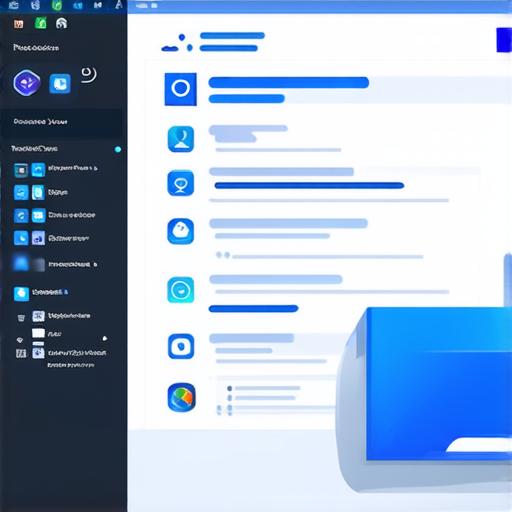Introduction
Application software is an essential tool for software developers to create and distribute software products. There are various types of application software available in the market today, each with its unique features and capabilities. In this article, we will explore 20 different types of application software that are widely used by software developers.
1. Productivity Software
Productivity software is designed to enhance the productivity of individuals or teams. Examples of productivity software include word processors, spreadsheets, presentation software, and project management tools. These software helps users to work more efficiently and effectively by automating repetitive tasks, tracking progress, and managing resources.

2. Collaboration Software
Collaboration software allows multiple users to work on the same project simultaneously. This type of software facilitates communication and collaboration among team members, enabling them to share ideas, documents, and feedback in real-time. Examples of collaboration software include video conferencing tools, instant messaging apps, and online document editors.
3. Customer Relationship Management (CRM) Software
CRM software is used by businesses to manage interactions with their customers and clients. It helps companies to organize customer data, track leads, and automate sales processes. CRM software can also be used to provide customer service by allowing users to manage customer queries and complaints.
4. Enterprise Resource Planning (ERP) Software
ERP software is an integrated software suite that helps businesses manage various aspects of their operations. It includes modules for finance, human resources, supply chain management, and customer relationship management. ERP software helps companies to streamline their processes, reduce errors, and improve efficiency.
5. Content Management System (CMS) Software
CMS software is used by websites and blogs to manage content creation, editing, and publishing. It allows users to create and update website pages, blog posts, and other types of content without requiring technical knowledge. CMS software also helps with search engine optimization (SEO) by enabling users to optimize their content for search engines.
6. Marketing Automation Software
Marketing automation software is used to automate marketing campaigns and improve lead generation. It helps companies to track leads, manage email marketing campaigns, and analyze customer data. Marketing automation software can also be used to personalize marketing messages and improve conversion rates.
7. Human Resource Management (HRM) Software
HRM software is used by businesses to manage human resources functions such as recruitment, payroll, and benefits administration. It helps companies to streamline HR processes, reduce errors, and improve employee engagement. HRM software can also be used to track employee performance and provide training and development opportunities.
8. Project Management Software
Project management software is used to plan, organize, and manage projects. It helps teams to collaborate effectively, assign tasks, and track progress. Project management software can also be used to create project timelines, budgets, and risk management plans.
9. Accounting Software
Accounting software is used by businesses to manage financial transactions such as invoicing, expense tracking, and payroll processing. It helps companies to keep accurate financial records, generate financial reports, and comply with regulatory requirements. Accounting software can also be used to automate accounting processes and reduce errors.
10. Time Tracking Software
Time tracking software is used by businesses and individuals to track time spent on tasks or projects. It helps companies to manage employee time effectively, improve productivity, and bill clients accurately. Time tracking software can also be used to generate reports on time spent, identify areas for improvement, and optimize work processes.
11. Inventory Management Software
Inventory management software is used by businesses to manage their inventory levels, track stock movement, and optimize supply chain operations. It helps companies to reduce waste, improve customer satisfaction, and increase profitability. Inventory management software can also be used to generate reports on inventory levels, identify trends, and forecast demand.
12. Point of Sale (POS) Software
POS software is used by retail businesses to manage sales transactions, track inventory, and generate reports. It helps businesses to improve customer service, reduce errors, and increase sales. POS software can also be used to integrate with e-commerce platforms and manage online sales.
13.
